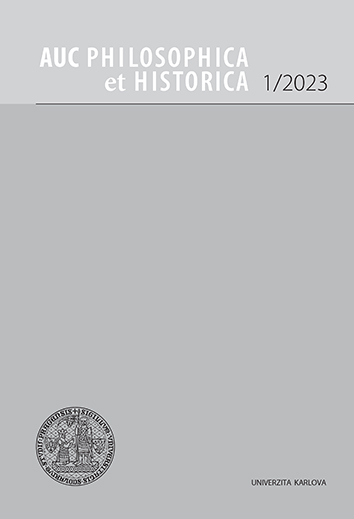AUC Philosophica et Historica je víceoborový akademický časopis zaměřený na humanitní a společenskovědné obory (filozofie, psychologie, pedagogika, sociologie, obecné, české a hospodářské dějiny, pomocné vědy historické a archivnictví, etnologie).
Časopis je indexován v databázích CEEOL, DOAJ a EBSCO.
AUC PHILOSOPHICA ET HISTORICA, Vol 1973 No 2 (1973), 27–42
Principiální východiska sovětské sociologické metodologie
[A Principled Point of Departure of Soviet Sociologial Methodology]
Milena Manová
DOI: https://doi.org/10.14712/24647055.2018.134
zveřejněno: 15. 01. 2018
Abstract
The concept of the methodology of sociology in Marxism and in present-day non Marxist sociology is principally different and antithetical. In the broader sense, methodology is a philosophical method on how to discuss-reality. For Marxist philosophy, such a method is inherent in the unity with theory. But science cannot base itself only on the thesis of a philosophical method. A philosophical method contributes to the formation of a method of the given science. In the work of Soviet sociologists emphasis is placed particularly on comprehensiveness as a characteristic feature of Marxist methodology, since Marxist sociology starts from the principled unity of method and theory. It rejects both mere empiricism and fruitless speculation, underlining the unity of theory and empiricism, theory and: practice, the unity of induction and deduction, of quantitative and qualitative analyses, analyses and synthese, the unity of logic and history. It frankly proclaims its relation-to ideology and stresses the class and Party-partisanship of its principles. In American sociology, methodology is traditionally understood as a summation of techniques and procedures of research. However, special empirical research cannot be-fruitful without a given general theory and practice itself refutes the demands of positivist-oriented sociology, that the sum of special researches replaces general sociological theories. In contrast to Marxist sociology, non-Marxist sociology emphasizes the contradiction between formal methodologies and concrete theories and the independence of sociological methodology from any sort of philosophical conception. Soviet sociology, on the contrary, realizes that only a general sociological theory whose basis is historical and dialectical materialism can provide the answer to questions concerning the overall ideas about society, the future of its further development: and the reasons for changes which society undergoes. Marxist sociologists rebuke neo-positivism for ignoring the qualitative characteristic of social phenomena. They point out the need to respect qualitative and quantitative-indices. Soviet sociology regards its task not in copying the methods of bourgeois sociology, but in elaborating the applications of technique in the frame of Marxist methodology and also working out general methodological problems of concrete sociological research. In the unity of general sociological theory and a summary of concrete sociological research programs, Marxist sociology assumes a completely special significance in practical social life. That is why Marxist social science is transformed into a really scientific basis for the administration of society.
